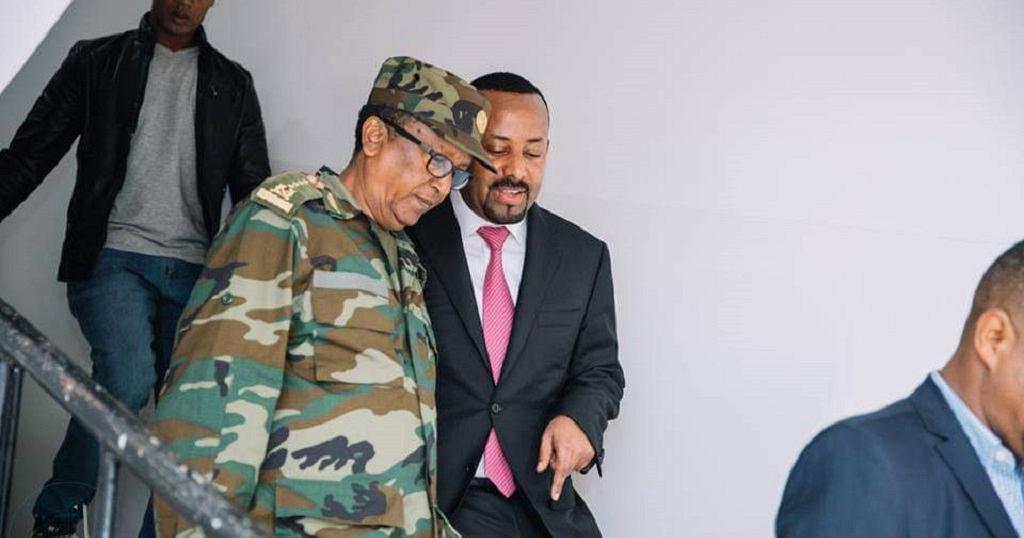
ADDIS ABABA – A coup attempt reported in Ethiopia on Saturday, June 22 was planned by a renegade military general in the country’s Amhara regional city of Bahir Dar but was suppressed, the government has said.
Gunmen on Saturday stormed a meeting in Bahir Dar, killing the city president Ambachew Mekonnen and his top adviser and grievously injuring the regional attorney general.
Shortly after, the bodyguard of army chief of staff Gen. Seare Mekonnen opened fire on him, killing him and an associate in Addis Ababa.
Government spokeswoman Bilene Seyoum said Brig. Gen. Asaminew Tsige, had been imprisoned for his political views by the previous government several years before, was behind the attack.
“The coup attempt and attack was orchestrated by Brig. Gen. Asaminew Tsige, the Amhara peace and security head with other agents,” she is quoted as saying by Washington Post.
“He and his colleagues were given amnesty over the last year by the new administration amid efforts to integrate them back to regular life.”
Ms Seyoum said most of the perpetrators, including Seare’s bodyguard, were in custody and operations were underway to sweep up the remaining accomplices.
The Amhara region was “currently under 100 percent control,” she added.
The BBC quotes the Prime Minister’s press office as sayiy that those involved in the coup attempt are under arrest and operations are in progress to detain others.
“The coup attempt in Amhara regional state is against the constitution and is intended to scupper the hard-won peace of the region,” it added.
“This illegal attempt should be condemned by all Ethiopians and the federal government has full capacity to overpower this armed group.”
Ethiopia’s politics has undergone a dramatic change over the last year, with the arrival of new reformist prime minister who has invited back exiled opposition politicians and guerrilla groups as well as freed thousands of political prisoners.
Asaminew had been imprisoned by the previous regime for his opposition to the government and his release and appointment to head of security was part of the larger reconciliation process.
The new freedoms, however, have allowed long simmering tensions to rise to the surface and millions have been displaced in ethnic-based land conflicts around the country.
In 2018, with some 3 million driven from their homes, Ethiopia had the largest number of newly displaced in the world.
According to BBC’s Emmanuel Igunza, the attack marks a tumultuous time for Ethiopia and Prime Minister Abiy, who is already facing increased ethnic tensions.
Chief of staff Seare Mekonnen had only served as head of the military for a year having been appointed by Mr Abiy, who made sweeping changes in the security apparatus when he took office last April.
It is clear there is still significant opposition within the military as opposed to the PM’s style of leadership.
The killing of Amhara’s governor is also a big blow for Mr Abiy, who is credited with installing Ambachew Mekonnen in office.
He was a key ally in Amhara, which is itself facing security problems and clamour from some groups for greater autonomy from the central government.
The first general election since Mr Abiy came to power is supposed to be held next year, but it is very hard to see how this will go ahead in a country that is highly polarised. The atmosphere is just too toxic.






